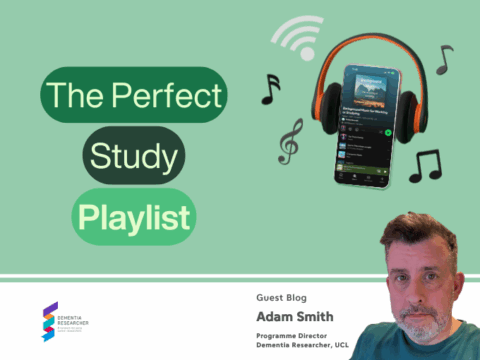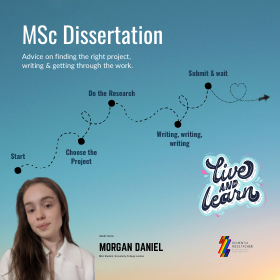
When I talk to PhD candidates about how they plan their time, this is one of the challenges that I hear come up over and over again: what does full-time study really mean?
What full-time study looks like for you is also impacted by the culture of your lab or office (or lack of one). Some departments have a culture of working long hours and being visible at the desk or the bench. In other departments, everyone works from home so you’d never know what a full day looks like for your colleagues. Some research cultures are ‘always on’, especially where grad students live in residence or in small college towns; or are cultures where you have to at least pretend to be always on.
How you experience ‘full-time’ study will also be impacted by what is required for you to undertake your research. Some kinds of research require you to pop into the lab every day so your cell cultures don’t die, and other kinds of research require you to do extensive field work. It’s likely the pattern of work will change over your degree, as you focus on different tasks.
So, here is a quick guide to what you should be considering as you make the decision to ‘study full-time’.
One the one hand, studying full time assumes that you are spending about 40 hours a week on your studies. Yet you’ve often heard me say that you can only work effectively on hard things like writing for about 2-4 hours a day (or 10-20 hours a week). How do these things fit together?
- Full-time study means we assume those 2-4 hours of your best time are ALWAYS going to be given to your research.
- Study is more than academic writing and eureka! moments.
Setting up experiments, going to the library, updating your reference manager, filling out compliance forms, walking between your office and your supervisor’s office, reading university newsletters, planning train journeys for archive visits etc, all take time and are vital. - Being a full time student means you should be taking part in the wider university and campus culture—sitting on leadership committees, going to seminars, joining sports teams and music groups, getting involved with the student union, having corridor chats with other students and staff.
- Being a full time student probably doesn’t mean you aren’t working—I certainly had a teaching and an admin job (yes simultaneously, no not at the same university or even in the same city!) But it means those jobs are extras to support your time as a student (giving you extra money, work experience, community and networks), not the main thing.
- Being a full time student also means you have the opportunity to use ‘between times’ to add to your student experience—grab a coffee with another researcher, observe the latest brouhaha on academic twitter while you eat lunch, stick your head in to door of your mentor as you head down the corridor and home. These tiny, mostly informal, touch points are essential to feeling connected and having a student experience.
Studying full-time is sometimes required for visa or scholarship reasons–and this can be challenging, but it is also intended to enable you to focus on your research and fully experience the vibrant community that campuses and conferences make available to you.
Also remember ‘full-time’ does not mean 24/7. You shouldn’t be working every hour of the day. Working for over 55 hours/week means your health and mental abilities really suffer—that negatively impacts your studies, your work, and your home responsibilities. How those hours carve up will be different for everyone, and that’s okay, but you need schedule in time for breaks (aim for 7-9 hours sleep a night, annual leave, at least one rest day a week), and for self- and others-care (sick leave, carers leave, bereavement leave).
Even if you are part of an ‘always on’ culture, there are ways to manage doing enough good work without burning yourself out. As a graduate researcher, you are probably at the bottom of the pecking order and are unlikely to be able to change an entrenched culture of everyone working ostensibly 80-hour weeks. Because people aren’t efficient if they are working that many hours, you will still have the same productivity–and so instead I recommend you consider ‘passing strategies’, like the ones in this Harvard Business Review article.
You should be catching up with friends and pursuing hobbies (even if it’s only a pub night once a fortnight or going to the cinema every couple of months). It’s important not to lose touch with the people who matter to you and the things that fill up your soul during your PhD. Watch live sport or live music, go to the art gallery, knit a few rows of a scarf, bake cakes, tinker with that vintage motorcycle, go to Zumba. Not only will it use a different part of you—your body, your emotions, your hands—it will re-energise you and support you as you focus on the intellectual work of completing a major research project.
I hope this post helps you to more effectively and healthily plan a full-time study load. Next time, I’ll post about part-time study!
Thank you to Research Degree Voodoo Website (now known as Research Degree Insiders), for allowing us to reproduce this blog. This site has lots of resources gathered, or developed, as part of Dr Katherine Firths work as an Academic Skills Adviser for the University of Melbourne; and now maintained as a doctoral mentor and external supervisor, for sharing with you. It is regularly updated with lots of great tips on writing. To read more from Katherine, give their site a visit.

 Print This Post
Print This Post




